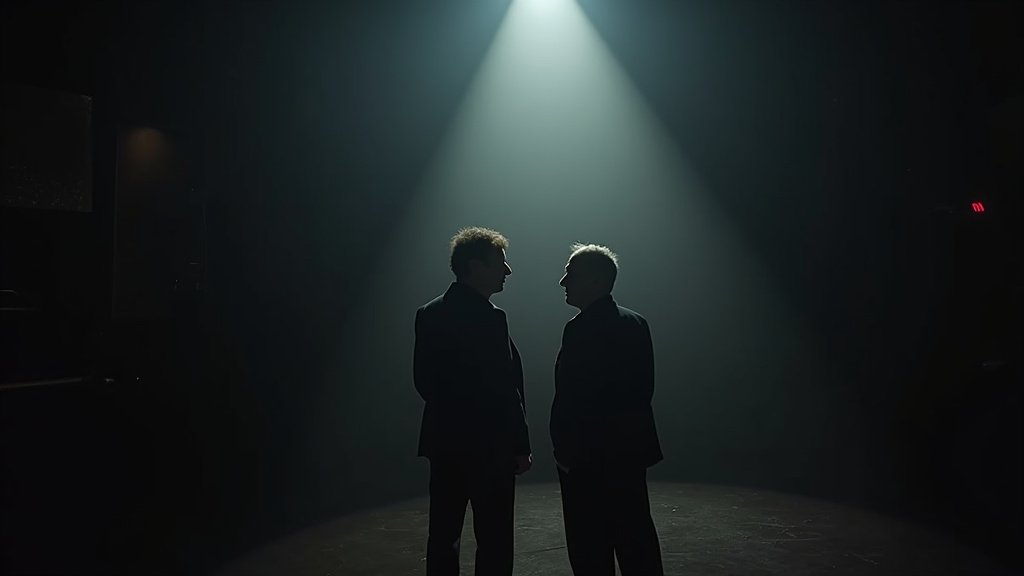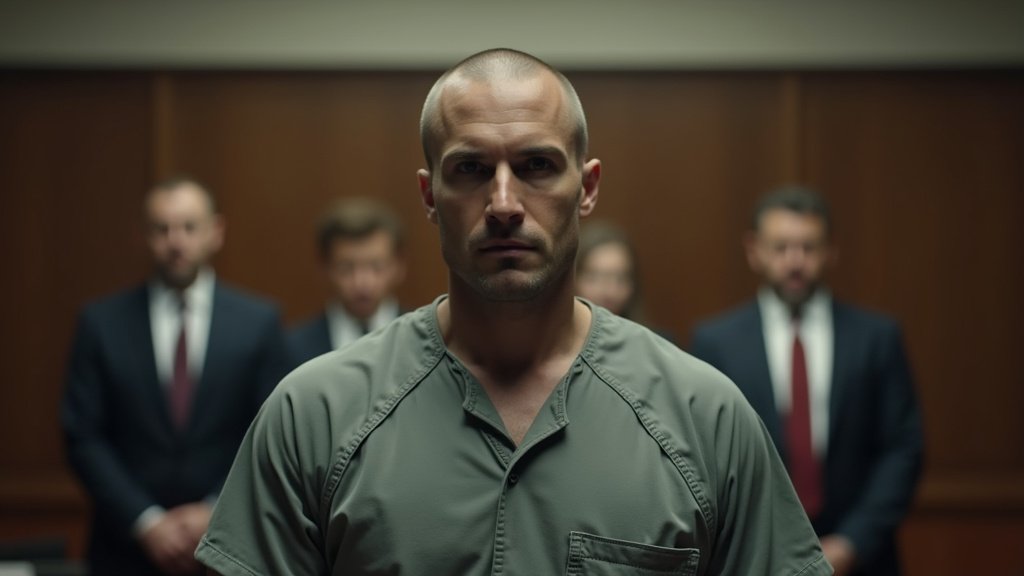Hollywood has always thrived on hype. From red carpet premieres to secret casting reveals, the entertainment industry has mastered the art of keeping the audience hooked. Every week, there’s a new headline promising an earth-shattering announcement or the next big blockbuster that will “change cinema forever.” But behind all the glitz and glamour, how much of Hollywood hype is based on substance, and how much is just clever marketing designed to manipulate our expectations?
In this article, we’ll peel back the layers of Hollywood’s hype machine. From the inflated buzz around upcoming films to celebrity rumors that take on a life of their own, let’s dive deep into what’s real, what’s exaggerated, and what’s purely fabricated to keep the media frenzy alive.
The Hype Machine: How Hollywood Manipulates Expectations
Hollywood is in the business of selling dreams, and part of that job is ensuring those dreams look larger than life. Every major studio has its marketing teams working overtime to create a sense of urgency, anticipation, and, yes, hype, around their projects. The goal is simple: to make us care, even obsess, about a film or a TV show long before it’s released. But how do they do it?
- Teaser Trailers and the Art of Misdirection
One of the most effective tools in the Hollywood hype arsenal is the teaser trailer. These short, often cryptic snippets are designed to spark curiosity without giving away too much. However, there’s a fine line between building anticipation and outright misleading audiences. How many times have we been dazzled by a trailer, only to find the actual movie doesn’t live up to the excitement?Trailers for films like Suicide Squad (2016) and Batman v Superman: Dawn of Justice (2016) were masters of this tactic. They showcased stunning visuals and hinted at storylines that seemed complex and thrilling. Yet, when the films finally hit theaters, many fans were left wondering if they had seen the same movie promised in those high-octane previews. Misleading trailers are just one of the many ways Hollywood manufactures hype—and it works, at least until the reviews come in. - The Power of Social Media Buzz
Social media has dramatically transformed the way Hollywood creates buzz. Platforms like Twitter, Instagram, and TikTok are rife with rumors, set photos, and behind-the-scenes clips that can send fans into a frenzy. Studios know that one viral post can ignite millions of conversations, so they strategically “leak” information or nudge influencers to amplify their content.This was especially evident during the lead-up to Spider-Man: No Way Home (2021). Rumors about multiple generations of Spider-Men appearing in the film sent fans into a speculative whirlwind for months. Every potential leak or clue was dissected and debated, feeding the hype machine continuously. Whether intentional or not, this relentless buzz creates an atmosphere where a movie seems destined for greatness—before anyone’s even seen a frame of it. - Casting Rumors: True or False?
Nothing gets fans more excited than the rumor of a beloved actor joining a big franchise. Studios use casting announcements (and often rumors) to stir interest and speculation. Will Tom Cruise really show up in a Marvel movie? Is Idris Elba the next James Bond? These questions can dominate headlines for months, despite there often being little to no truth behind them. In many cases, these rumors are more about keeping the project in the conversation than about actual plans.One of the most infamous instances of this was the speculation around Daniel Craig’s replacement as James Bond. Every major British actor was rumored to be in the running, fueling endless debates and media coverage. The more uncertain the news, the more the hype grows, ensuring that the film remains a talking point until its eventual release.
When Hype Fails: The Flop Factor
Not every hyped-up film lives up to its expectations. In fact, some of Hollywood’s most anticipated projects have turned into notorious flops. Whether due to poor critical reception, audience disappointment, or a mismatch between marketing and the final product, the crash following a hype high can be brutal.
- Over-Promising and Under-Delivering
A classic example of hype failing to meet expectations is Jupiter Ascending (2015). Directed by the Wachowskis, the film had all the ingredients of a blockbuster—big-name stars, groundbreaking visuals, and a hefty budget. Yet, the story and execution left audiences baffled and critics cold. Despite an aggressive marketing campaign that promised a game-changing sci-fi epic, the film struggled at the box office and quickly became an emblem of overhyped flops. - The Curse of Franchise Fatigue
Hollywood loves a franchise, but sometimes the sheer weight of expectation can crush a film. Star Wars: The Rise of Skywalker (2019) serves as a cautionary tale. The conclusion to a beloved saga, this film was burdened with immense pressure to satisfy not just current fans but generations of moviegoers. Unfortunately, the relentless buildup created unrealistic expectations that no film could realistically meet, leading to a polarized reception. - The Danger of Celebrity Attachments
Celebrity-driven hype can also backfire. When a star is the main draw for a project, the film or show becomes reliant on their public image. If that image takes a hit, so does the project. For instance, The Lone Ranger (2013), starring Johnny Depp, faced backlash long before its release, with critics and fans questioning Depp’s casting as Tonto. Despite Depp’s star power, the negative press led to a box office disaster.
How Much Is Too Much? The Hype Burnout
In the world of Hollywood, hype can sometimes reach a saturation point. Audiences, tired of the endless stream of “next big things,” may start tuning out the noise altogether. With so many blockbusters, reboots, and franchise continuations vying for attention, it’s harder than ever for a single project to stand out.
- Franchise Fatigue and Superhero Saturation
It’s no secret that superhero films have dominated the box office for the better part of the last two decades. Marvel, in particular, has turned its cinematic universe into an unstoppable force. But even with their proven track record, is there a point where superhero fatigue sets in? Some argue that the constant barrage of caped crusaders, intergalactic wars, and multiverse plotlines is starting to wear thin, making it difficult for even the most hyped superhero film to feel fresh.Movies like Eternals (2021) and Ant-Man and The Wasp: Quantumania (2023) were highly anticipated but failed to generate the same excitement and box office returns as earlier Marvel entries. While these films had plenty of buzz leading up to their releases, they ultimately couldn’t escape the weight of the massive superhero film slate that came before them. - The Risk of Reboots and Remakes
Another source of hype burnout is Hollywood’s obsession with reboots and remakes. Whether it’s a beloved ’80s classic or a ’90s cult favorite, studios know that reviving a known property brings built-in audiences. However, this can also lead to diminishing returns, as fans grow weary of seeing the same stories recycled.For every Mad Max: Fury Road (2015) that successfully reinvents a franchise, there’s a Ghostbusters (2016) or RoboCop (2014) that leaves audiences asking why they even bothered in the first place. The hype surrounding these remakes can often turn to disappointment when the new version fails to capture the magic of the original.
How to Navigate the Hype: Separating Fact from Fiction
As consumers, it’s increasingly difficult to know how much of Hollywood’s hype is genuine excitement for a quality product and how much is just clever marketing. Here are some tips for cutting through the noise and managing your expectations.
- Be Skeptical of Early Praise
Studios love to use early test screenings and critic reviews to bolster their films, but these reactions can sometimes be exaggerated or cherry-picked. Pay attention to the overall consensus from a variety of sources before buying into the early buzz. - Watch Out for Over-the-Top Marketing
When a film’s marketing campaign seems overbearing, it’s often a sign that the studio is compensating for a lack of confidence in the actual movie. Flashy trailers, overhyped press tours, and endless merchandise don’t necessarily guarantee a good film. - Wait for Audience Reactions
One of the best ways to gauge a movie’s true quality is to wait for the audience reaction. Sometimes, fans will have a much different perspective than critics or the press, and audience reviews can offer a more honest assessment.
Conclusion: The Hollywood Hype Train Rolls On
Hollywood thrives on the hype it creates, and we, as the audience, are both its willing passengers and its most vocal critics. While hype can elevate a good movie into a cultural phenomenon, it can also set expectations so high that even the most well-made films fall short. In the end, it’s up to us to approach the latest blockbuster or franchise installment with a healthy dose of skepticism—and a willingness to be surprised.





